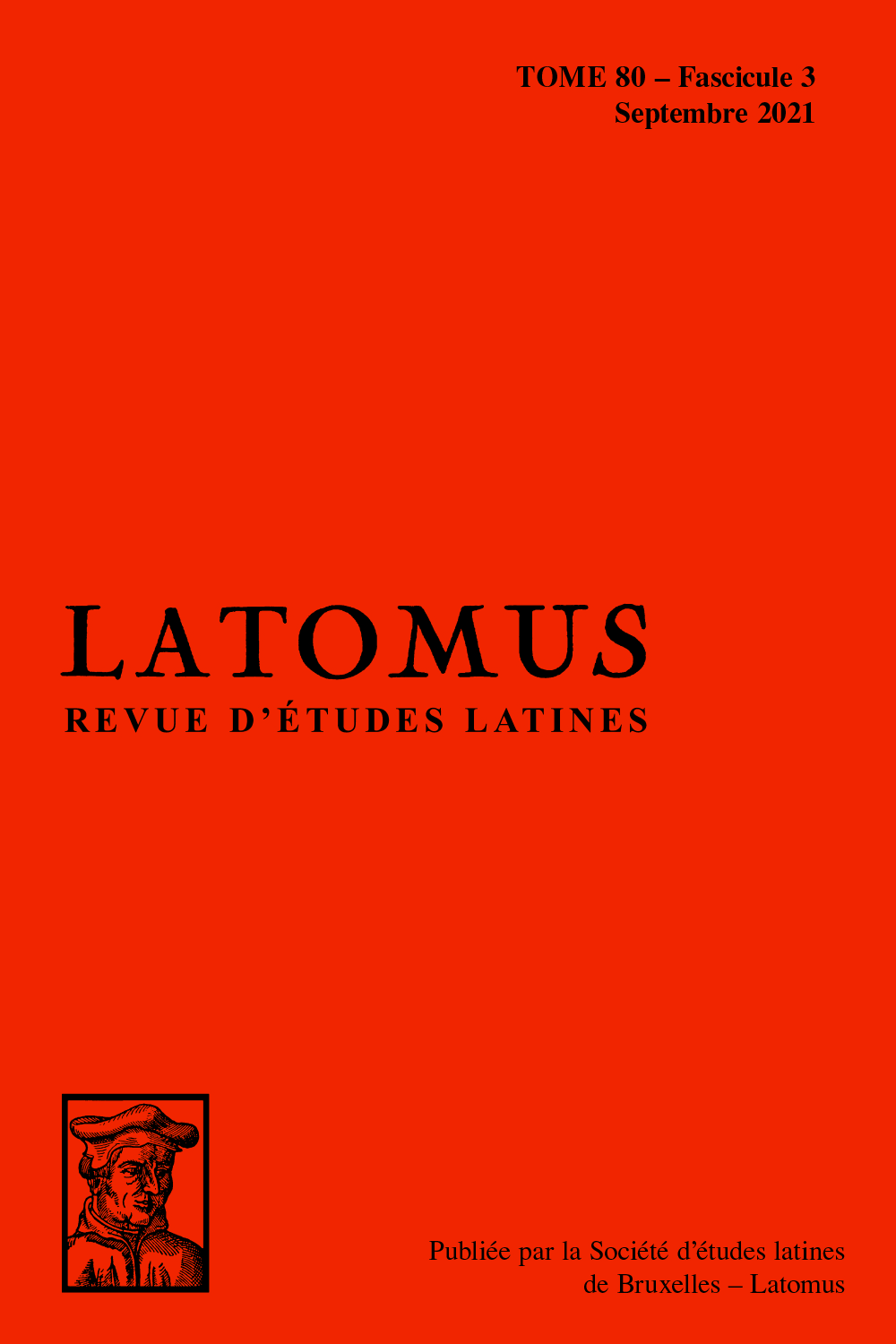 previous article in this issue previous article in this issue | next article in this issue  |

Preview first page |
Document Details : Title: Inviting the Barbarians Subtitle: Some Episodes of Treason Author(s): RENDINA, Simone Journal: Latomus Volume: 79 Issue: 1 Date: 2020 Pages: 158-183 DOI: 10.2143/LAT.79.1.3287980 Abstract : This paper analyses a specific accusation made against men and women of power that appears in several late antique sources. The accusation is that they secretly incited barbarian enemies to invade the Roman empire. This kind of treason is usually attributed to historical figures who sought revenge against domestic enemies, to defeat a usurper, or eliminate a legitimate emperor. The individuals accused of such treacherous 'invitations' are emperors (Constantius II), women of the court or Augustae (Serena, Honoria, Licinia Eudoxia), eunuchs (Hyacinthus, Narses), and public enemies (Rufinus, Stilicho, Bonifatius). These episodes should not, however, be regarded as a literary invention. In fact, they manifest the recurring desire among contemporaries to identify and punish scapegoats. These stories show, above all in the Theodosian age, how diplomatic relations with the barbarians were a delicate matter. These accusations of complicity with the barbarians were a means to demonise internal enemies. |
|


